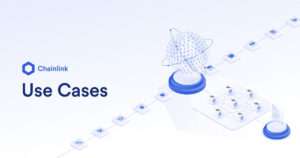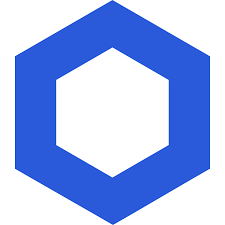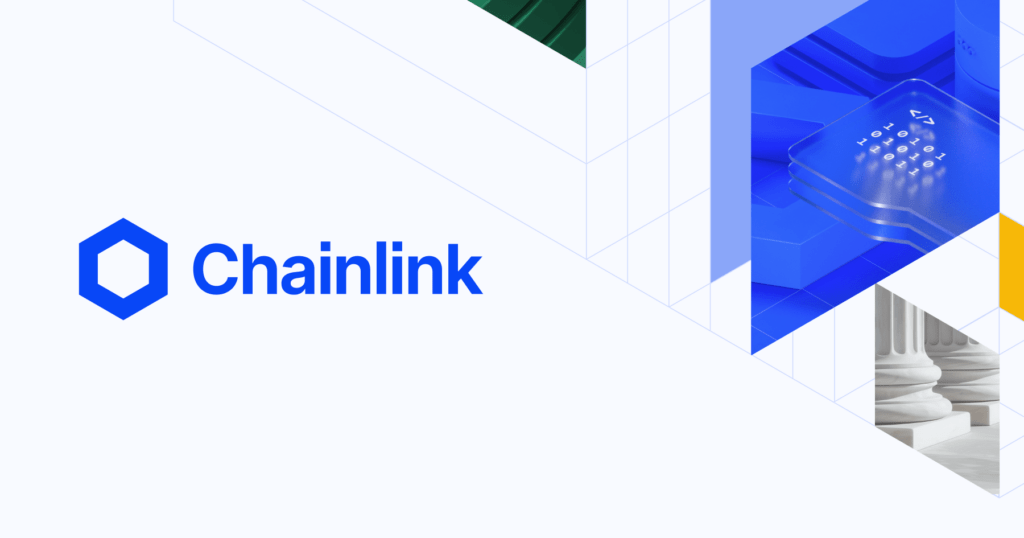Latest News
- Chainlink Price Continues To Hover Around $12.5 — Levels To Watch
- Hedera Joins NVIDIA, Chainlink Climbs — Yet Web3 ai’s Smart AI Tools & 1747% ROI Potential Gain Market Attention
- Chainlink Price To Hit $26 If LINK Breaks Past This Crucial Level
- Word On The Blockchain Street Is… SWIFT x Chainlink Is Happening - 11,500+ Banks Plugging Into CCIP? LINK Isn’t Just A Token, It Is The Backbone Of Global Finance
Current Price
The current price of LINK is $12.94019
Introduction
Welcome to our Chainlink review.
Chainlink (LINK) has emerged as a vital player in the blockchain landscape, particularly due to its unique capabilities as a decentralized oracle network.
By facilitating secure access to off-chain data for smart contracts, it enhances the functionality and reliability of decentralized applications.
However, understanding the intricacies of how Chainlink operates, its distinct features, and its implications for the broader decentralized finance (DeFi) ecosystem raises several important questions.
What does the future hold for Chainlink, and how might its developments impact the market dynamics?
Find all the answers in this review!
Quick Overview
- Chainlink provides decentralized oracle solutions, enabling smart contracts to securely access off-chain data for enhanced functionality and reliability.
- Its decentralized network of oracles aggregates data from multiple sources, ensuring accuracy and trustworthiness in real-time applications.
- The LINK token incentivizes node operators to provide reliable data and plays a crucial role in governance and staking mechanisms.
- Chainlink is essential in decentralized finance (DeFi) for supplying accurate price feeds and automating processes like claims settlements in insurance.
- Strategic partnerships with companies like Google Cloud and Ethereum enhance Chainlink’s services and expand its reach within the blockchain ecosystem.

Overview of Chainlink
Providing decentralized oracle solutions, Chainlink (LINK) serves as a critical infrastructure layer for blockchain ecosystems, enabling smart contracts to access off-chain data. This functionality is crucial, as smart contracts often require real-world information to execute correctly, yet traditional blockchain systems lack the capability to interface with external data sources.
Chainlink addresses this gap by utilizing a network of decentralized oracles, which aggregate data from various sources and deliver it to the smart contracts in a secure and tamper-proof manner. The decentralized nature of Chainlink’s architecture mitigates risks associated with single points of failure, enhancing the overall reliability of data inputs.
Moreover, Chainlink’s token, LINK, plays an essential role in incentivizing nodes within the network to provide accurate data. This tokenomics model not only encourages reliability but also establishes a financial framework that sustains the ecosystem.
Chainlink’s interoperability with multiple blockchains further enhances its utility, allowing developers to leverage the oracle network across diverse platforms. As the demand for decentralized finance (DeFi) and other blockchain applications grows, Chainlink’s role in ensuring the integrity and accessibility of off-chain data positions it as a foundational element in the evolving blockchain landscape.
How Chainlink Works
Here is a helpful video explaining more about how Chainlinks works:
Chainlink operates through a network of decentralized oracles that facilitate the connection between smart contracts and real-world data sources.
This integration allows smart contracts to execute based on external information, enhancing their functionality and reliability.
The decentralized architecture further guarantees that data integrity is maintained, mitigating the risks associated with single points of failure.
Oracles and Data Sources
Frequently, the effectiveness of decentralized applications hinges on their ability to access real-world data, a challenge that is adeptly addressed by Chainlink through its innovative oracle framework. Oracles serve as essential intermediaries that facilitate the transfer of off-chain data to on-chain smart contracts, enabling these contracts to trigger actions based on real-world events.
Chainlink’s architecture incorporates multiple decentralized oracles, which aggregate data from a variety of sources to guarantee reliability and accuracy. This multi-source approach mitigates the risk of data manipulation or single points of failure, enhancing the overall security of the network.
By utilizing a reputation system, Chainlink incentivizes data providers to deliver high-quality information, since those that consistently provide accurate data gain credibility within the ecosystem.
Moreover, Chainlink supports various types of data, including financial market data, weather information, and sports scores, thereby broadening the scope of decentralized applications. The flexibility in data sourcing allows developers to implement diverse use cases, from decentralized finance (DeFi) to supply chain management.
Consequently, Chainlink’s oracles not only enhance the functionality of smart contracts but also foster trust and transparency within the blockchain ecosystem.
Smart Contract Integration
The seamless integration of smart contracts with off-chain data represents a significant advancement in the blockchain ecosystem, enabling the execution of complex agreements that respond to real-world conditions. Chainlink’s decentralized oracle network facilitates this integration, allowing smart contracts to access data from external sources securely and reliably.
Chainlink operates by bridging the gap between on-chain and off-chain environments, which is vital for various applications. The functionality of Chainlink can be distilled into several key components:
- Decentralization: Multiple independent oracles reduce the risk of data manipulation and single points of failure.
- Data Validation: Aggregating data from various sources guarantees accuracy and integrity, enhancing trust in the information provided.
- Flexibility: Smart contracts can be designed for diverse use cases, including finance, insurance, and supply chain management.
- Automated Triggers: Chainlink enables automated execution of contracts based on real-time data inputs, improving efficiency.
- Interoperability: The ability to integrate with multiple blockchain networks expands the usability of smart contracts across different platforms.
This structured approach underscores Chainlink’s role as an essential facilitator in harnessing the full potential of smart contracts.
Decentralized Network Architecture
At the core of Chainlink’s functionality lies a decentralized network architecture designed to enhance data reliability and security for smart contracts. This architecture consists of multiple independent oracles that aggregate data from various sources, thereby reducing the risk of single points of failure and manipulation. Each oracle operates autonomously, retrieving off-chain data and delivering it to smart contracts on the blockchain.
Chainlink’s decentralized approach addresses crucial issues such as data validity and trustworthiness. By employing a consensus mechanism among oracles, it guarantees that the information provided is accurate and reflects a broad consensus of the data sources consulted. This is particularly essential for applications requiring high levels of trust, such as financial services and insurance.
Additionally, Chainlink’s architecture allows for the integration of multiple data feeds and APIs, enabling developers to create complex decentralized applications (dApps) that depend on real-world information.
Moreover, by leveraging a token-based incentive structure, Chainlink guarantees that oracles remain motivated to provide reliable data, thereby reinforcing the overall integrity of the network. This sophisticated architecture positions Chainlink as a crucial player in the evolution of decentralized finance and smart contract ecosystems.
Key Features of Chainlink
Chainlink (LINK) stands out in the blockchain ecosystem due to its innovative approach to decentralized oracles, which serve as a crucial bridge between smart contracts and real-world data. This unique functionality encompasses several key features that enhance its utility and robustness, making it a leading solution for data integration in blockchain applications.
- Decentralization: Chainlink operates on a decentralized network of oracles, reducing the risk of single points of failure and enhancing data reliability.
- Secure Data Transmission: By utilizing cryptographic proofs, Chainlink guarantees that the data provided to smart contracts is accurate and tamper-proof.
- Cross-Chain Compatibility: Chainlink can connect multiple blockchain networks, enabling interoperability between different platforms and expanding its use cases.
- Reputation System: Chainlink employs a reputation mechanism to assess the reliability of data providers, incentivizing high-quality data delivery and maintaining overall system integrity.
- Extensibility: Developers can customize and build upon Chainlink’s infrastructure, allowing for tailored solutions that meet specific requirements of various applications.
These features collectively position Chainlink as a significant player in the blockchain space, driving the evolution of decentralized applications.

Data Privacy Solutions
Data privacy is becoming increasingly critical in the digital landscape, particularly as organizations leverage blockchain technology for data management and transactions.
Chainlink offers innovative solutions to safeguard sensitive information while ensuring that smart contracts can function effectively without compromising privacy. By integrating oracles and advanced cryptographic techniques, Chainlink allows organizations to utilize off-chain data without exposing it to public visibility.
Key use cases for Chainlink’s data privacy solutions include:
- Confidential Transactions: Facilitating private financial transactions that protect user identity and transaction details.
- Privacy-Preserving Smart Contracts: Enabling contracts that execute terms without revealing underlying data, ensuring confidentiality.
- Regulatory Compliance: Assisting organizations in adhering to data protection laws like GDPR while utilizing blockchain.
- Decentralized Finance (DeFi): Enhancing privacy features in DeFi applications, allowing users to trade without revealing their identities.
- Supply Chain Management: Securing sensitive supply chain data while maintaining transparency for stakeholders.
Chainlink’s Role in DeFi
Chainlink plays a pivotal role in the decentralized finance (DeFi) ecosystem by providing secure and reliable access to off-chain data through its oracle network. This functionality is essential for various DeFi applications that rely on real-world data to execute smart contracts accurately and efficiently.
For instance, price feeds are critical for lending platforms, decentralized exchanges, and automated market makers, where accurate asset valuations directly impact liquidity and risk management.
Chainlink’s decentralized oracle network mitigates the risk of single points of failure and guarantees data integrity, which is particularly important in the volatile crypto market. By aggregating data from multiple sources, Chainlink enhances the reliability of inputs, minimizing the vulnerabilities associated with data manipulation or outages.
Additionally, its robust framework supports various types of data, including financial market data, weather information, and event outcomes, broadening the applicability of DeFi solutions.
Partnerships and Integrations
Establishing strategic partnerships and integrations has been a cornerstone of Chainlink’s growth and adaptability within the blockchain ecosystem. These collaborations enable Chainlink to enhance its oracle services, facilitate greater data accessibility, and broaden its utility across various platforms.
By aligning with key players in the industry, Chainlink has solidified its position as a leading provider of decentralized oracle networks.
Notable partnerships and integrations include:
- Google Cloud: Enhancing cloud computing capabilities for developers using Chainlink.
- SWIFT: Exploring interoperability between traditional finance and blockchain technology.
- Ethereum: Strengthening the connection between smart contracts and real-world data.
- Binance Smart Chain: Expanding Chainlink’s reach within decentralized finance (DeFi) ecosystems.
- Arbitrum: Providing scalability solutions while maintaining secure data feeds.
These alliances not only amplify Chainlink’s technological infrastructure but also foster innovation in decentralized applications (dApps) and financial services.
As the blockchain landscape continues to evolve, Chainlink’s strategic partnerships will be instrumental in driving adoption and ensuring the resilience of its oracle services across various sectors.
LINK Tokenomics
The strategic partnerships and integrations that Chainlink has cultivated play an essential role in its ecosystem, not only enhancing its oracle capabilities but also influencing its tokenomics.
Chainlink’s native token, LINK, serves multiple functions within its decentralized network. Primarily, LINK tokens are utilized as payment for services rendered by node operators who provide data to smart contracts, creating a direct economic incentive for accurate and reliable data transmission.
The overall supply of LINK is capped at 1 billion tokens, which were issued during the Initial Coin Offering (ICO) in 2017. A significant portion of these tokens is allocated to incentivize network participants, with approximately 35% reserved for node operators. This incentivization model fosters competition, ensuring that only high-quality data providers remain active within the network.
Additionally, Chainlink’s tokenomics incorporates mechanisms to encourage long-term holding among participants, contributing to token scarcity. The utilization of LINK in governance and staking mechanisms further enhances its appeal, allowing token holders to have a say in the protocol’s future developments.
Consequently, Chainlink’s tokenomics not only supports its operational framework but also positions LINK as a crucial asset in the broader decentralized finance (DeFi) landscape.

Competitors in the Market
In the rapidly evolving landscape of decentralized finance and blockchain technology, several competitors have emerged that challenge Chainlink’s dominance in the oracle space.
These competitors aim to provide reliable, secure, and efficient data feeds to smart contracts, often leveraging unique methodologies or technological innovations. Understanding their strengths and weaknesses is essential for stakeholders in the blockchain ecosystem.
Key competitors include:
- Band Protocol: Utilizes a decentralized network of data providers and focuses on cost-efficiency and scalability.
- API3: Emphasizes a decentralized model where data providers own and manage their APIs, aiming for reduced latency and increased transparency.
- Oraculos: Combines on-chain and off-chain data solutions, targeting specific use cases such as gaming and IoT.
- Tellor: Offers a decentralized oracle system that incentivizes miners to submit accurate data, emphasizing security through financial penalties.
- Witnet: Focuses on a unique proof-of-value mechanism to guarantee data integrity and incentivize node operators.
As these competitors continue to innovate, the oracle market remains dynamic, challenging Chainlink to enhance its offerings and maintain its position as a leader in the sector.
Future Developments and Roadmap
The future developments and roadmap for Chainlink (LINK) include several key initiatives aimed at enhancing its protocol, broadening partnerships, and identifying new use cases.
These strategic advancements are designed to solidify Chainlink’s position as a leader in the decentralized oracle space.
Upcoming Protocol Enhancements
Looking ahead, Chainlink’s roadmap outlines several upcoming protocol enhancements aimed at improving scalability, security, and functionality.
These enhancements are vital for maintaining Chainlink’s competitive edge in the evolving landscape of decentralized oracle networks. By addressing current limitations, the protocol is poised to bolster its performance and utility across various blockchain ecosystems.
Key upcoming enhancements include:
- Decentralized Data Aggregation: Improving the accuracy and reliability of data feeds by diversifying sources.
- Cross-Chain Interoperability: Facilitating seamless communication between different blockchain networks to enhance data accessibility.
- Chainlink VRF (Verifiable Random Function): Implementing cryptographic proofs to guarantee randomness in smart contract operations, critical for gaming and lotteries.
- Enhanced Security Protocols: Strengthening the security framework to prevent potential attacks and vulnerabilities in oracle services.
- Increased Throughput: Optimizing network performance to handle a higher volume of transactions without compromising speed or efficiency.
These enhancements reflect Chainlink’s commitment to evolving its technology to meet the demands of decentralized applications and smart contracts, guaranteeing its relevance as a leading oracle solution in the blockchain space.
Expansion of Partnerships
As Chainlink continues to solidify its position in the blockchain ecosystem, the expansion of partnerships remains a pivotal aspect of its future developments and roadmap. The strategic alliances that Chainlink forges with various blockchain platforms, enterprises, and data providers are critical for enhancing its decentralized oracle network.
These partnerships not only broaden the use cases for Chainlink but also augment its credibility and market reach. Through collaborations with key players in finance, insurance, and technology, Chainlink aims to integrate its oracle solutions into diverse applications, thereby facilitating real-time data access and interoperability across different blockchains.
The emphasis on building relationships with established firms allows Chainlink to leverage their existing networks, fostering a more extensive adoption of its services. Moreover, Chainlink’s commitment to expanding its ecosystem through partnerships is indicative of its proactive approach to addressing market needs.
New Use Cases
Chainlink’s ongoing innovations and the exploration of new use cases are central to its future developments and roadmap. The project aims to enhance its ecosystem by leveraging smart contracts across various industries, thereby increasing the utility and adoption of decentralized finance (DeFi) and beyond.
Key areas of focus for Chainlink’s new use cases include:
- Cross-Chain Interoperability: Facilitating seamless communication between different blockchain networks to enhance asset liquidity and functionality.
- Decentralized Data Oracles: Enabling reliable access to real-world data, which is essential for executing smart contracts accurately.
- Insurance Automation: Streamlining claims processing and payouts through automated smart contracts based on verified data inputs.
- Gaming and NFTs: Enhancing blockchain-based gaming experiences and NFT marketplaces with dynamic, real-time data feeds.
- Supply Chain Management: Providing transparency and traceability in supply chains through tamper-proof data integration.
These potential use cases highlight Chainlink’s commitment to expanding its role within the blockchain ecosystem, positioning itself as a foundational layer for various applications that rely on accurate and secure data interactions.
Frequently Asked Questions
What Is the History Behind the Creation of Chainlink?
The creation of Chainlink emerged from the need for decentralized oracles to connect smart contracts with real-world data, addressing limitations in blockchain ecosystems. Founded in 2017, it aimed to enhance functionality and interoperability across various decentralized applications.
How Does Chainlink Ensure Data Accuracy and Reliability?
Chainlink guarantees data accuracy and reliability through decentralized oracles, which aggregate multiple data sources, utilize cryptographic proofs, and employ a reputation system for node operators, thereby enhancing trustworthiness and resilience against single points of failure.
Who Are the Key Team Members Behind Chainlink?
The key team members behind the project include co-founder Sergey Nazarov and CTO Ari Jules, both of whom possess extensive expertise in blockchain technology, smart contracts, and decentralized applications, contributing to the project’s innovative infrastructure and growth.
What Security Measures Does Chainlink Implement to Prevent Attacks?
Chainlink employs multiple security measures, including decentralized oracles, cryptographic proofs, and node reputation systems. These strategies mitigate risks of data manipulation and guarantee reliable, tamper-proof data transmission between blockchain networks and external sources.
Are There Any Notable Controversies Surrounding Chainlink?
Notable controversies surrounding Chainlink include concerns about its centralization, potential over-reliance on specific data providers, and the implications of its partnerships. These factors raise questions regarding decentralization principles and the long-term sustainability of its ecosystem.
Wrapping Up
To sum up, Chainlink is a critical advancement in the integration of off-chain data within blockchain ecosystems.
Its decentralized oracle network enhances the functionality and reliability of smart contracts, particularly in the DeFi sector.
With robust features such as data aggregation and a reputation system for providers, Chainlink establishes itself as a leader in the market.
Future developments and its strategic roadmap will likely influence its ongoing impact and adoption within the broader blockchain landscape.

